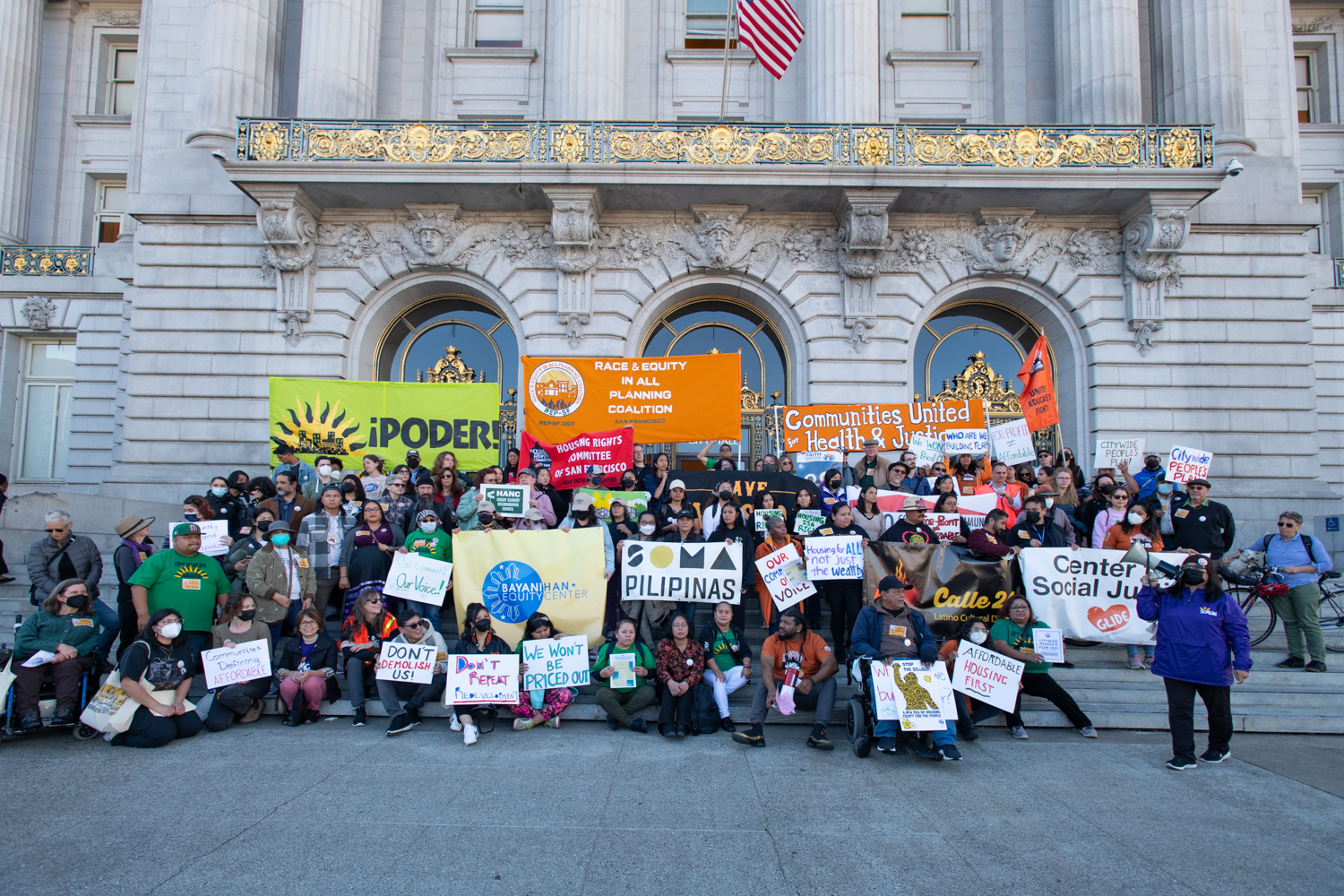SF won’t begin to meet its housing goals unless Breed commits the funding.
In the coming weeks, Mayor London Breed will present a $14 billion budget proposal that will shape the direction of affordable housing in San Francisco for years to come. This budget will choose to either invest voter-approved funding to expand the supply of affordable housing, or to scatter and spend that funding for uses not intended by the voters.
In 2020, a clear majority of San Francisco’s voters approved Proposition I, which increased taxes on the transfer of real estate worth more than $10 million. The official ballot arguments in favor of the measure explicitly stated that the new revenue should be dedicated to expanding affordable housing. Since then, Proposition I has generated more than a quarter of a billion dollars in new revenue for the City of San Francisco, and the Board of Supervisors unanimously approved an ordinance to commit Proposition I revenue to affordable housing upon its passage.

An affordable housing rally at City Hall. 48 Hills, May 9 2023
Proposition I became a model for Los Angeles’ Measure ULA, which also increased taxes on large property sales and was approved by voters last year. Following its passage, Mayor Karen Bass immediately committed Measure ULA revenue towards an ambitious and innovative plan for housing preservation and production. Yet it remains unclear whether Breed will follow our sister city’s lead.
The need for greater city investment in affordable housing is obvious. Despite some rent decreases during the pandemic, the average rent for a two-bedroom apartment in San Francisco remains at $3,900, far out of reach for families below, or even at, median incomes. Waiting lists for existing affordable housing are years-long, and housing costs continue to drive essential workers out of the city.
Last month, the Housing Stability Fund Oversight Board, a citizens’ advisory committee formed to oversee uses of Proposition I revenue, presented a comprehensive budget proposal to the Mayor and Board of Supervisors to invest $85 million in new revenue to acquire land for and construct new subsidized housing, fund critical upgrades to SROs and other aging affordable housing, and explore alternative models of social housing, such as mixed-income municipal housing and limited-equity ownership cooperatives.
Increasing the city’s investment in affordable and social housing in a budget deficit year is challenging but critical to our economic recovery. Housing is infrastructure: Just as our upcoming city budget will not stop installing new sewer lines, upgrading Muni buses, and repaving streets, it must lay the groundwork for future housing, especially when the boom-and-bust cycle of the real estate market is trending down. Land values in San Francisco today are at their lowest point in over ten years; acquiring land now will lower the cost of affordable housing in future years and will deliver housing sooner.
City policymakers have paid much attention to rezoning and reducing construction barriers, especially for market-rate housing. But these efforts are not enough to house tens of thousands of low- and middle-income San Franciscans, whether they live in the city or spend hours-long daily commutes to work here. We cannot “streamline” affordable housing that isn’t funded in the first place, and while we need the state and federal government to step up to the plate in providing public investment, San Franciscans literally cannot afford to wait on them to do so.
A commitment of $85 million of Proposition I revenue to housing would constitute only 0.6 percent of the city’s total $14 billion dollar budget. Dedicating consistent revenue from Prop I and other sources is only one step in achieving our state-mandated housing production goals for the broad spectrum of cost-burdened San Franciscans who cannot afford market rates. But if Mayor Breed and the city cannot take this small step, it will be difficult, if not impossible, to take bigger ones.
Shanti Singh is the chair of the San Francisco Housing Stability Fund Oversight Board, and an advocate for state and local tenants’ rights and land use policy. Roisin Isner is the Director of Activism and Operations for the San Francisco Tenants Union.


